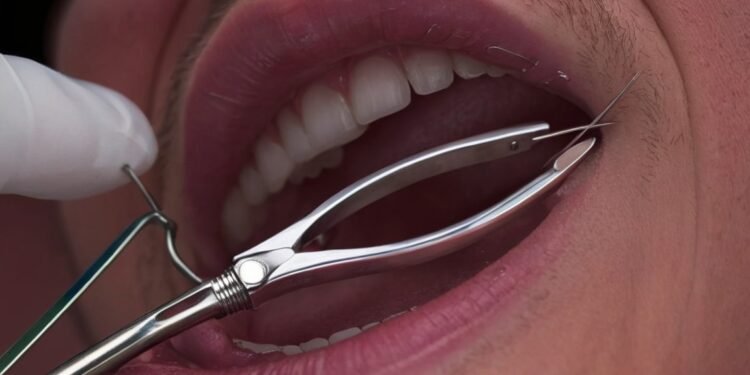Explore the long-term complications of forceps delivery for both infants and mothers, including neurological issues, pelvic floor dysfunction, and treatment options to manage and prevent lasting effects.
This article examines the possible complications associated with forceps delivery later in life, their causes, symptoms, and available management strategies.
Introduction:
Forceps delivery is an assisted vaginal birth technique used when labor becomes prolonged or the baby faces difficulties in descending through the birth canal. While this method has been instrumental in saving lives in emergency obstetric situations, concerns remain regarding the potential long-term complications it may cause for both the infant and the mother.
Understanding Forceps Delivery:
Forceps delivery involves the use of a specialized surgical instrument resembling large tongs or spoons to grasp the baby’s head and assist in guiding it out of the birth canal. This procedure is typically performed when:
- The baby shows signs of distress and needs to be delivered quickly.
- The mother is unable to push effectively due to exhaustion or medical conditions.
- Labor has stalled despite adequate contractions.
Though forceps delivery can be a life-saving intervention, it carries inherent risks that may manifest later in life.
Long-Term Complications for the Infant:
Neurological Disorders:
Forceps application can exert significant pressure on the infant’s head, potentially causing minor or major brain injuries.
Conditions such as cerebral palsy, epilepsy, and developmental delays have been linked to traumatic forceps deliveries.
Can Urgent Care Treat Dehydration?
Facial Nerve Palsy:
The pressure exerted by forceps can damage the facial nerves, leading to temporary or permanent weakness or paralysis on one side of the face.
While many cases resolve within weeks, some individuals may experience lingering asymmetry or muscle dysfunction.
Eye and Vision Problems:
Retinal hemorrhage and optic nerve damage have been reported in some forceps-assisted deliveries.Later in life, individuals may develop vision impairments, such as strabismus or amblyopia.
Hearing Impairment:
Damage to the delicate structures of the inner ear due to excessive pressure can contribute to hearing loss.
Chronic ear infections may also result from skull or nerve damage sustained during birth.
Skull and Cranial Deformities:
Skull fractures or molding can occur due to improper forceps placement.
Some children may require corrective surgery for cranial abnormalities, and in severe cases, the effects can persist into adulthood.
Long-Term Complications for the Mother:
Pelvic Floor Dysfunction:
Forceps deliveries are associated with a higher risk of pelvic floor trauma, leading to urinary incontinence, fecal incontinence, and pelvic organ prolapse.
Women who undergo forceps-assisted births may require pelvic floor rehabilitation or, in severe cases, surgical intervention.
Chronic Pain and Nerve Damage:
Nerve compression or damage during delivery can cause persistent pain in the lower back, perineal region, or legs.
Some women experience sciatica-like symptoms or chronic pelvic pain long after childbirth.
Sexual Dysfunction:
Due to pelvic floor trauma, some women report pain during intercourse (dyspareunia), reduced vaginal sensation, or psychological distress related to sexual activity.
Psychological Effects:
Birth trauma, especially when associated with a forceps delivery, can contribute to post-traumatic stress disorder (PTSD), anxiety, and depression.
Feelings of guilt, failure, or fear of future pregnancies may persist.
Risk Factors Contributing to Complications:
Several factors may increase the likelihood of complications associated with forceps delivery, including:
- Improper Placement of Forceps: If the forceps are incorrectly positioned, the risk of trauma to the baby’s head or the mother’s birth canal increases.
- Excessive Force: Applying too much pressure can lead to severe injuries, including skull fractures or pelvic organ damage.
- Prolonged Labor Before Intervention: The longer the baby remains in distress before forceps are used, the greater the risk of oxygen deprivation and related complications.
- Maternal Health Conditions: Conditions like gestational diabetes, preeclampsia, or connective tissue disorders can heighten the risk of adverse outcomes.
Management and Treatment of Long-Term Complications:
For Infants:
- Early Intervention Therapy:
- Physical therapy and occupational therapy can help improve motor function and address developmental delays.
- Medical and Surgical Treatment:
- Neurological disorders like cerebral palsy may require medication, surgical interventions, or assistive devices.
- Regular Eye and Hearing Examinations:
- Vision therapy and hearing aids may be necessary for affected individuals.
- Speech Therapy:
- If forceps delivery resulted in facial nerve damage or other speech-affecting conditions, early speech therapy can aid in language development.
For Mothers:
- Pelvic Floor Rehabilitation:
- Kegel exercises, pelvic floor therapy, and biofeedback techniques can strengthen the pelvic muscles and reduce incontinence.
- Pain Management Strategies:
- Physical therapy, pain relief medications, or nerve block injections may help alleviate chronic pain.
- Psychological Support:
- Counseling, support groups, and cognitive-behavioral therapy (CBT) can assist in managing post-traumatic stress and anxiety related to childbirth.
- Surgical Interventions:
- In cases of severe pelvic organ prolapse or incontinence, surgical correction may be necessary.
Preventive Measures and Alternatives:
To minimize the risks associated with forceps delivery, medical practitioners can consider alternative approaches such as:
- Vacuum-Assisted Delivery: A gentler alternative that uses suction to assist delivery rather than forceps pressure.
- Cesarean Section: In cases where forceps delivery poses high risks, a C-section may be a safer option.
- Improved Labor Monitoring: Early detection of labor complications allows for timely intervention before an emergency forceps delivery becomes necessary.
Conclusion:
While forceps delivery can be a lifesaving intervention, it is not without risks. Infants may experience neurological, facial, and sensory complications that persist into adulthood, while mothers can face chronic pelvic floor issues, pain, and psychological distress.
Early intervention, rehabilitation, and medical management are essential for those affected. By understanding the potential complications and advocating for safer birthing practices, medical professionals and expectant parents can work together to minimize risks and ensure better outcomes for both mother and child.








Discussion about this post